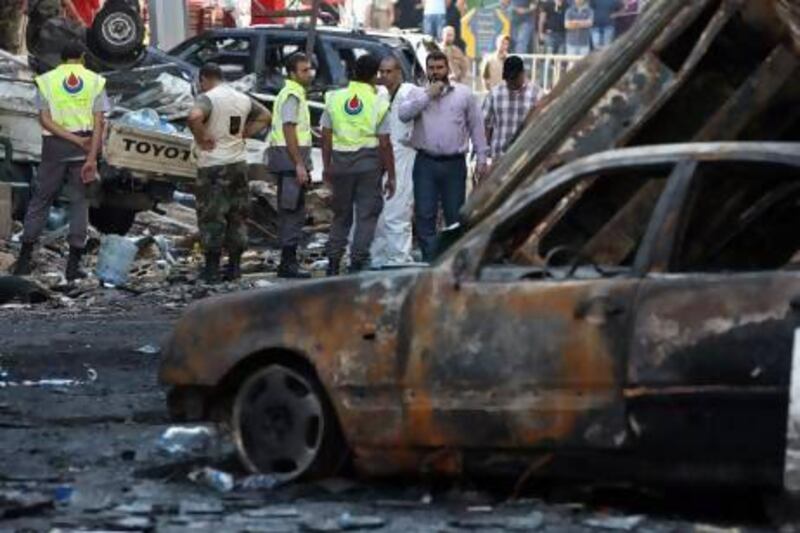ABU DHABI // Arabian Gulf countries yesterday criticised Hizbollah for interfering in Syrian affairs after the chief of the Lebanese militant group vowed to double the number of fighters he sends in support of Bashar Al Assad's regime.
The statement comes amid growing fears that the Syrian conflict could threaten the stability of Lebanon, Iraq and Jordan.
"Nasrallah continues to boast about the participation of his militia in slaughtering children, women and innocent Syrians, and destroying their towns and property," said Abdullatif Al Zayani, secretary general of the Gulf Cooperation Council (GCC), in a statement.
"This is a flagrant meddling in their internal affairs and an obvious violation of the Syrian sovereignty," he said, describing Mr Nasrallah's speech as being "irresponsible".
Mr Nasrallah promised to increase his support for the Syrian president last week, a day after a car bomb hit a Hizbollah stronghold in southern Beirut on August 15, killing 27.
A previously unknown Syrian rebel group, the Brigades of Aisha, claimed responsibility for the attack, describing it as a "warning" to Mr Nasrallah for Hizbollah's involvement in the Syrian conflict.
Mr Al Zayani had condemned the bombing on behalf of the GCC, saying it targeted "Lebanon's peaceful cohabitation, through sowing sedition", according to a statement from his office on August 16.
But Mr Nasrallah said on Friday that Hizbollah would continue its support to Mr Al Assad.
"If we have a thousand fighters in Syria, they will become 2,000, and if we have 5,000 fighters in Syria, they will become 10,000," he told supporters, adding that he would fight in Syria himself.
Since Hizbollah confirmed its participation in the conflict in May, Syrian opposition forces have warned that the Shiite militia could shift the momentum of fighting toward the regime. In June, Hizbollah fighters helped Syrian government forces retake the key city of Qusayr, near the Lebanese border.
"Hizbollah hasn't made any new deployment since taking Al Qusayr," said Michael Stephens, a researcher at the Royal United Services Institute in Doha. He estimated that the group could potentially deploy up to 5,000 fighters.
Gulf countries have consistently condemned Hizbollah's involvement in the conflict, worrying that it could destabilise the region.
Hizbollah's support of Mr Assad's regime has also exacerbated the increasingly sectarian nature of the Syrian civil war, pitting Shiite Iran and its Hizbollah allies against the mostly Sunni rebels, backed by the Gulf states and Turkey.
Also yesterday, King Abdullah II of Jordan - which hosts more than half a million Syrian refugees - urged Muslim clerics attending a meeting in Amman to help contain the spillover of Syria's sectarian strife.
"You are the scholars of the Islamic world and it is your responsibility to confront the ethnic and sectarian strife in Syria," the king told the group of clerics taking part in a conference at Jordan's Royal Aal Al-Bayt Institute for Islamic Thought.
"The bloodshed in Syria should be stopped and the unity of this country, and that of the rest of the Arab and Islamic nation, should be preserved."
Yesterday's GCC statement represented the first time the regional bloc has explicitly condemned Hizbollah's leader, Mr Nasrallah.
"The statement is one of a serious of measures from the Gulf that have tried to isolate Hizbollah," said Mr Stephens. "It's a region-wide movement to squeeze the party and to stop them from expanding."
In June, the GCC agreed to implement sanctions against the group's interests in the Gulf, including by targeting finances and individual supporters.
The GCC comprises Bahrain, Kuwait, Oman, Qatar, Saudi Arabia and the UAE.
edickinson@thenational.ae
* With additional reporting from Agence France-Presse
twitter: For breaking news from the Gulf, the Middle East and around the globe follow The National World. Follow us





